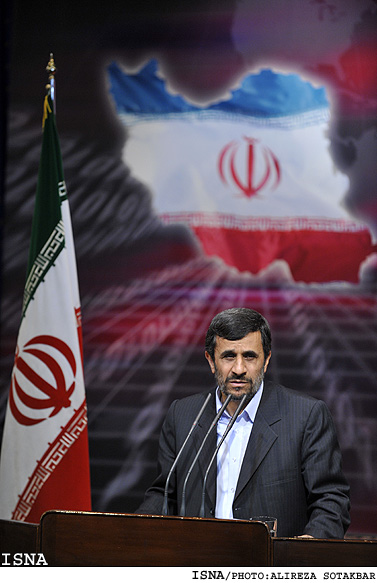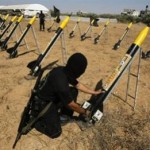
My kids are no longer kids: my son is 13 and my daughter is 10 going on 18. But, as I am driving, it still happens. First, a sharp one-liner, then a squeal, and a quick escalation to a scuffle and "Dad!". I just keep my eyes on the road, trying not to notice.
Well, President Obama has given his annual set-piece speech, the Washington pundits have pronounced, and already everyone "in the know" are rubbing hands over the forthcoming showdowns between the White House and Congress over domestic issues. And all the while I'm thinking about this speech....
When it comes to the US beyond Capitol Hill and its borders, President Obama just tried to ignore the kids in the backseat.
Video & Transcript: President Obama’s State of the Union Address (27 January)
That's far from a shocking response. Obama's immediate road ahead, for his future and that of the US, is the economy and health care. Having bailed out a leaking ship last year, the Administration now has to show progress on employment; otherwise, the Republicans, even though it was their eight years in the White House that set up the debacle and even though they have put forth no alternatives for the way out of recession, can just keep hammering away at White House failure. As for health care, what should be the overriding issue --- an expensive, inefficient US system will continue to leave millions of Americans unprotected --- is being replaced by the politics of display: the Obama Administration needs a bill, no matter how watered down, just to show that it is not captive to the blows of the Republican minority in Congress.
Not surprising then that the President only devoted eight out of 60+ minutes to affairs beyond the US. What is more significant, of course, is what was in those eight minutes.
Speaking to his front-seat passangers --- Congressmen and "fellow Americans" --- the President returned to the rhetoric of his Inaugural:
Let’s put aside the schoolyard taunts about who is tough. Let’s reject the false choice between protecting our people and upholding our values. Let’s leave behind the fear and division and do what it takes to defend our nation and forge a more hopeful future — for America and the world.
Going back to lofty words is not necessarily a bad thing, and Obama should be commended, given past White House-whipped-up hysteria about "security", for trying to damp down the culture of fear, for example, over the recent incident of the failed Christmas Day explosion on a US-bound flight.
But for the kids in the backseat --- the squabbles over US involvement in the world from Central Asia to the Middle East to Africa to Latin America --- Obama had nothing beyond the stock phrases of a Dad trying not to notice:
We have prohibited torture and strengthened partnerships....Hundreds of al-Qaida’s fighters and affiliates, including many senior leaders, have been captured or killed — far more than in 2008....In Afghanistan, we are increasing our troops and training Afghan Security Forces....We are responsibly leaving Iraq to its people....
We are also confronting perhaps the greatest danger to the American people — the threat of nuclear weapons....We are working through the G-20 to sustain a lasting global recovery. We are working with Muslim communities around the world to promote science, education and innovation. We have gone from a bystander to a leader in the fight against climate change. We are helping developing countries to feed themselves and continuing the fight against HIV/AIDS....
America must always stand on the side of freedom and human dignity.
For some in the front seat, the litany was enough.
Robert Dreyfuss of The Nation declared, "It was a pleasure to listen to a State of the Union address, especially after eight years of his predecessor's alarmist warnings and warlike thundering, in which war, terrorism, and 'rogue states' went almost unmentioned."
By the benchmark of avoiding the foreign policy pile-ups of 2001-2009, there's something to say for Eyes on the Road and Leave the Kids Alone. But, if Obama is serious about his declaration, "Abroad, America’s greatest source of strength has always been our ideals," he better take a look over his shoulder.
It's all too easy to rip away the screen of the rhetoric. Obama may have "prohibited torture" through his Executive Order, but the promise to close Guantanamo Bay --- unmentioned in the speech --- is gone, and there are much bigger US detention facilities in Afghanistan holding uncharged prisoners who may or may not be going through "enhanced interrogation". "Hundreds of al-Qaida’s fighters and affiliates" killed also means, in bombings and drone attacks, hundreds of civilians killed, with the consequences for public attitudes towards US interventions in Afghanistan and Pakistan.
The declaration about fighting corruption in Afghanistan, after last summer's failed symbol of the Presidential election, is now a sentence without significance, and Obama did not even bother to make a reference to non-military projects in the country. And "responsibly leaving" Iraq? Well, the political and economic conflicts have been left to the Iraqis --- which is preferable to the Bushian approach --- but it is far from clear what 100,000+ US troops are now doing as bystanders.
Yes, all too easy to identify the thin and getting thinner rhetoric overlaying the complexities and tensions in American "interventions". What was really disappointing for me, however, is that Obama did not even bother to offer the squabbling kids some words of substance.
There is a virtue, under this Administration, that Bush-era fist-shaking has been replaced by "engagement". In Latin America, no more quick-fix solutions like the attempted 2002 coup in Venezuela but recognition of governments, even if their interests do not coincide with those of Washington. (For the moment, I'm treating Honduras as a serious but exceptional complication.) In Africa, the military-first approach of AFRICOM and rather empty posturing over issues such as Sudan has been replaced by diplomacy. And while it was a bit rich for Obama to claim "leadership" on climate change, at least the US hasn't loudly picked up its toys and gone home, as was the case over the last eight years.
But "engagement" has got to have meaning beyond rhetoric and has got to have significance in the tough cases. Months after Obama's Ankara and Cairo speech, and despite his attempted cover of "working with Muslim communities", I am pretty sure that those in the backseat will have noted no reference to Israel and Palestine, or even the Middle East. Obama's Iran references, in light of the internal developments in and beyond Tehran, appeared obsolete (the same old engagement/sanctions declaration in a nuclear-first policy) and fleeting (a mention of "an Iranian woman" standing in for any engagement with how the US backs "rights" in a difficult case).
And of course, Obama can say "values, values, values", but "values" sit uneasily alongside the military-first approach in the symbolic centrepieces of Afghanistan and Pakistan. They don't stand in for a political approach that is based on more than putting in more troops and pretending that the issues at the centre of the Afghanistan and Pakistan Governments will just vanish, even if we really don't like Mr Karzai or Mr Zardari.
I'm sorry to be snippy. Dads have it tough at the best of time. But even a well-intentioned father has to got to recognise that, at some point, squabbles have got to be confronted with more than a reassurance that "Dad/America Knows/Means Best". Especially when the US was not a part of these squabbles but has been very much a central actor in them --- and, with its failures of engagement and its recourse to the harder side of US power --- and is still much part of the argument.
 Friday, January 29, 2010 at 17:35
Friday, January 29, 2010 at 17:35 





